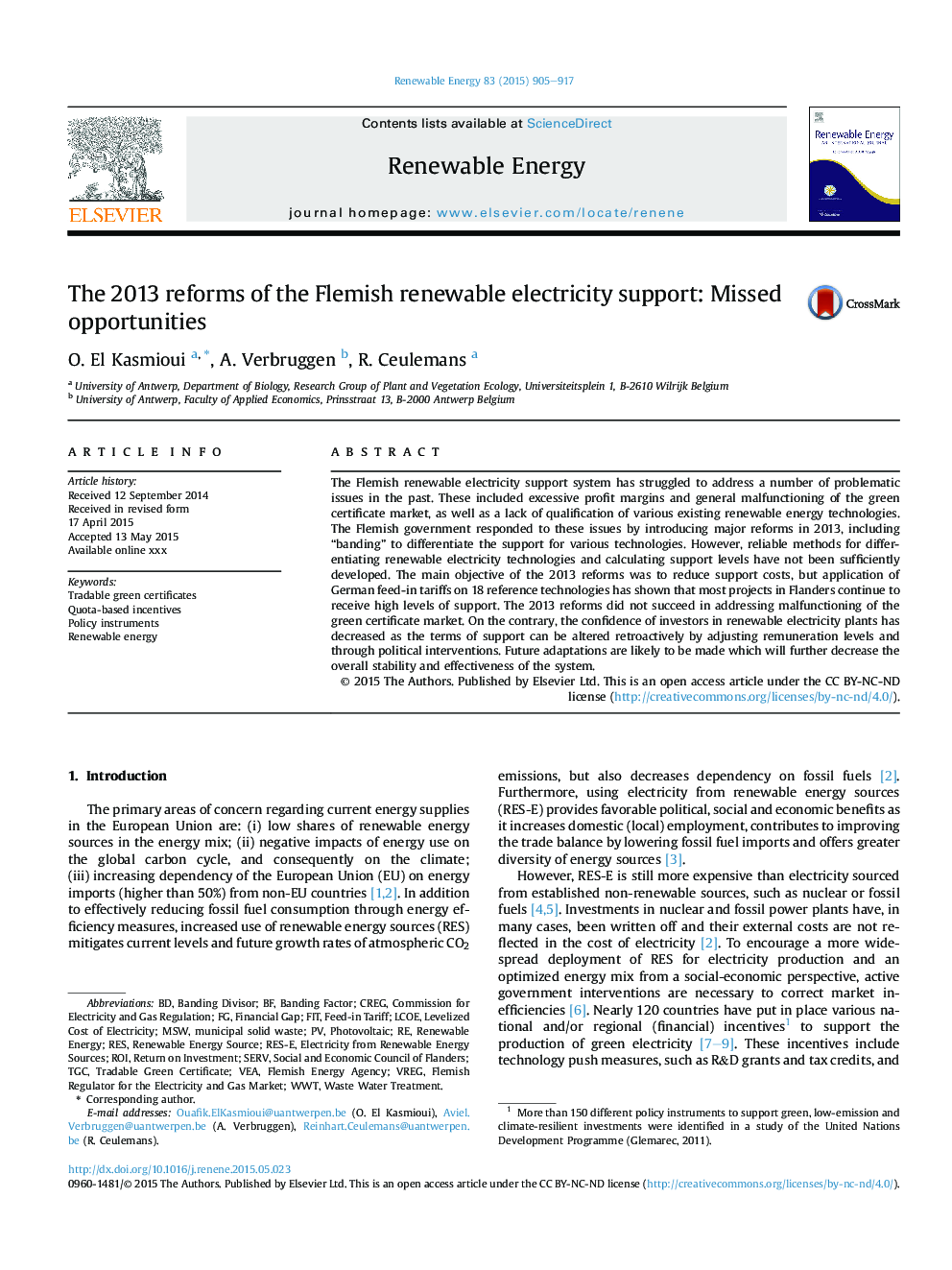| Article ID | Journal | Published Year | Pages | File Type |
|---|---|---|---|---|
| 6767409 | Renewable Energy | 2015 | 13 Pages |
Abstract
The Flemish renewable electricity support system has struggled to address a number of problematic issues in the past. These included excessive profit margins and general malfunctioning of the green certificate market, as well as a lack of qualification of various existing renewable energy technologies. The Flemish government responded to these issues by introducing major reforms in 2013, including “banding” to differentiate the support for various technologies. However, reliable methods for differentiating renewable electricity technologies and calculating support levels have not been sufficiently developed. The main objective of the 2013 reforms was to reduce support costs, but application of German feed-in tariffs on 18 reference technologies has shown that most projects in Flanders continue to receive high levels of support. The 2013 reforms did not succeed in addressing malfunctioning of the green certificate market. On the contrary, the confidence of investors in renewable electricity plants has decreased as the terms of support can be altered retroactively by adjusting remuneration levels and through political interventions. Future adaptations are likely to be made which will further decrease the overall stability and effectiveness of the system.
Keywords
Related Topics
Physical Sciences and Engineering
Energy
Renewable Energy, Sustainability and the Environment
Authors
O. El Kasmioui, A. Verbruggen, R. Ceulemans,
